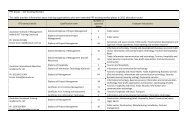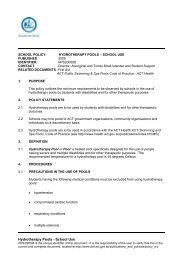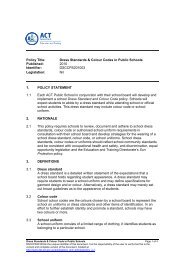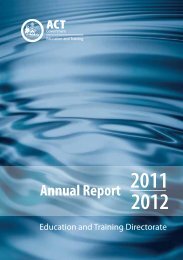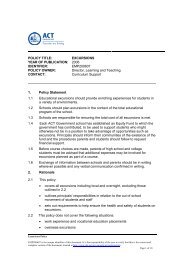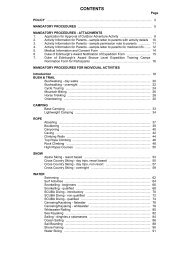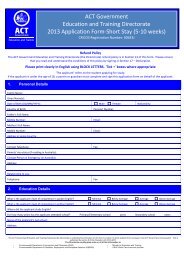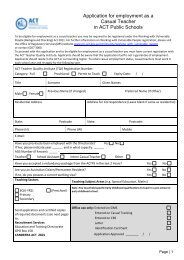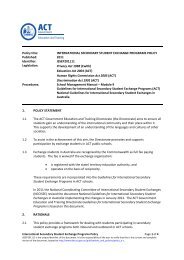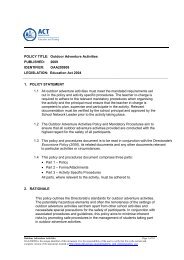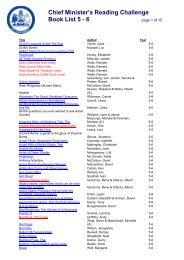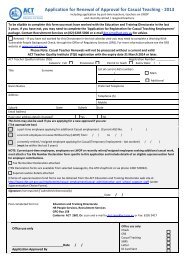Young People at Work in the ACT - Education and Training ...
Young People at Work in the ACT - Education and Training ...
Young People at Work in the ACT - Education and Training ...
You also want an ePaper? Increase the reach of your titles
YUMPU automatically turns print PDFs into web optimized ePapers that Google loves.
How many hours can I work per week?<br />
As a young person between 15 <strong>and</strong> 17 your hours of work<br />
are not restricted to 10 hours per week. The maximum<br />
hours th<strong>at</strong> you are allowed to work will be determ<strong>in</strong>ed by<br />
<strong>the</strong> <strong>in</strong>dustry th<strong>at</strong> you work for, <strong>and</strong> <strong>the</strong> associ<strong>at</strong>ed award<br />
<strong>and</strong> workplace agreement. To f<strong>in</strong>d out more, visit www.fwo.<br />
gov.au.<br />
Wh<strong>at</strong> about apprenticeships?<br />
You may be able to undertake an apprenticeship while<br />
you are still <strong>in</strong> school. An Australian School-Based<br />
Apprenticeships allows you to:<br />
• F<strong>in</strong>ish Years 11 <strong>and</strong> 12 while you start your<br />
apprenticeship<br />
• Receive a tra<strong>in</strong><strong>in</strong>g wage or apprentice wage for <strong>the</strong> time<br />
you spend ‘on-<strong>the</strong>-job’ with your employer<br />
• Be covered by a tra<strong>in</strong><strong>in</strong>g contract, which l<strong>in</strong>ks to an<br />
<strong>in</strong>dustrial award or agreement<br />
To f<strong>in</strong>d out more, visit: www.australianapprenticeships.gov.<br />
au or www.det.act.gov.au<br />
Checklist<br />
Start<strong>in</strong>g <strong>Work</strong>? Make sure th<strong>at</strong> you...<br />
Have your parent/carer’s consent (if you are under 15)<br />
Underst<strong>and</strong> <strong>the</strong> type of work you will be do<strong>in</strong>g,<br />
<strong>and</strong> your work<strong>in</strong>g conditions<br />
Have considered whe<strong>the</strong>r your new workload can<br />
be balanced with school work<br />
F<strong>in</strong>d out wh<strong>at</strong> breaks you will be entitled to<br />
Are familiar with your pay entitlements <strong>and</strong><br />
<strong>the</strong> responsibilities of your employer<br />
Know how much <strong>and</strong> how often you will be paid<br />
Are aware of when you will be expected to work <strong>and</strong><br />
for wh<strong>at</strong> lengths of time<br />
Know whe<strong>the</strong>r <strong>the</strong> employment will be full-time,<br />
part-time or casual<br />
Talk with your employer about whe<strong>the</strong>r <strong>the</strong>re will be<br />
a prob<strong>at</strong>ion period when you start work<br />
Have <strong>the</strong> contact person th<strong>at</strong> you need to call if you<br />
are runn<strong>in</strong>g l<strong>at</strong>e to work or can’t make it due to illness<br />
Know how you can travel to <strong>and</strong> from work safely<br />
19 20



